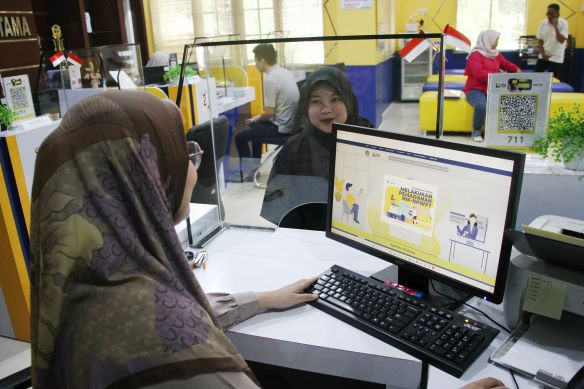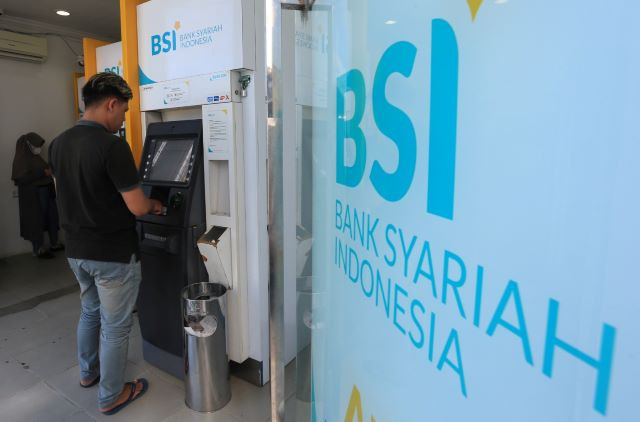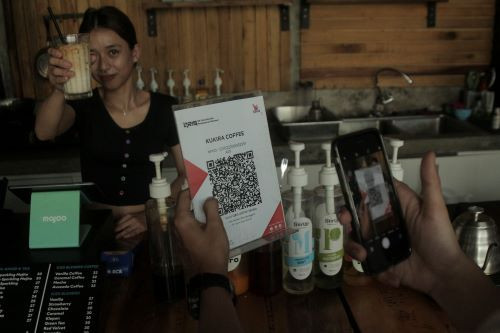Cost recovery rule and IRR
Change Size
 Kalimantan Jawa Gas (KJG) technical and operational director Cahyo Triyogo (right), KJG regional manager Imam Supardi (center) and a field worker inspect gas supply from the Kepodang gas well in the Java Sea, which is channeled to the Tambak Lorok onshore receiving facilities (ORF) in Semarang, Central Java, recently. (JP/Wahyoe Boediwardhana)
Kalimantan Jawa Gas (KJG) technical and operational director Cahyo Triyogo (right), KJG regional manager Imam Supardi (center) and a field worker inspect gas supply from the Kepodang gas well in the Java Sea, which is channeled to the Tambak Lorok onshore receiving facilities (ORF) in Semarang, Central Java, recently. (JP/Wahyoe Boediwardhana)
I
ndonesia was the pioneer of the production sharing contract (PSC) scheme when the concept was introduced in 1966. PSC schemes continue to be implemented and have been adopted by many hydrocarbon-producing countries. However, recently one of Indonesian PSC’s components, the cost recovery arrangement, has been blamed as a severe barrier to investment in the upstream oil industry.
The cost recovery rule is stipulated in Government Regulation No. 79/2010 on recoverable operating costs and income tax treatment for the upstream oil and gas industry. The state oil and gas policymaker, the Energy and Mineral Resources Ministry, views that regulation as no longer relevant because oil and gas exploration and production activities have been moving to more complex and riskier areas than past times (such as in deepwater blocks). Thus, to woo investors to undertake those projects, a higher internal rate of return (IRR) is required. As a response, the Energy and Mineral Resources Ministry has discussed amending the regulation with the Finance Ministry.
Previously, undermined by low oil prices and unattractive terms and conditions, no contract was awarded in the Indonesian conventional oil and gas 2015 bidding round. The upstream oil and gas industry is a capital-intensive business, and many countries rely on foreign companies’ funds for exploring their regions. The competition for foreign funds has been increasingly fierce.
IRR is a decision criterion in capital budgeting and expressed in a percentage. To calculate an IRR, an analyst will use a projects’ estimated cash flow based on capital expenditure, revenues, operating expenditures, and the timing of their occurrence. Generally, if a company requires a minimum rate of return of 10 percent, and a project has a 20 percent IRR, then the project is acceptable financially.
However, it is important to note that IRR does not reflect an absolute value. An investor would not choose a project with 20 percent IRR and net present value (NPV) of US$10 million, over another project that has 15 percent IRR but has an NPV of $100 million. NPV is another decision criterion that measures monetary value.
Amid the low oil price trend, shrinking revenues and profits force companies to slash their capital expenditures. To some governments, this simply means lower investment. Some countries have provided or considered fiscal incentives to keep their upstream industry running. UK cut its petroleum revenue tax from 50 percent to 35 percent in 2015, and this rate was reduced drastically to zero percent in 2016. Peru says that it plans to reduce royalties from 20 percent to 5 percent in future contracts.
In the 2016 oil and gas block auction, Energy and Mineral Resources Ministry introduced the open bid split scheme. Under this new scheme, the government does not determine a specific Government Take (government share of a project’s profit) of an offered block. Instead, investors take the initiative to submit bids on the Government Take rate.
From the perspective of governments, balancing interests to capture maximum economic benefits, while encouraging investment, is the key to robust exploration and exploitation activities. Governments reap economic benefits through their petroleum fiscal regimes, which are basically all the payments companies make to the government (such as bonuses, production splits and taxes), in an upstream arrangement as the result of fiscal terms.
Loosening fiscal regimes means lower government revenue, but it might boost the investment climate for exploration.
At the end of the day, if an exploration succeeds, it can increase oil production, which a couple of years later will serve as a country’s new tax base. That is an ideal situation. For some oil-producing countries, oil revenue is a significant contributor to the state treasury, and lower revenue will instantly hurt their budget. This condition could be a position they tend to avoid. For countries with this type of issue, there is still a way out if an improved IRR is what an investor really needs.
Back to IRR’s components: cash flows (in and out) and their timing, a country can improve its investment climate by examining the timing aspect. If the timing for investors’ cash flows is accelerated, it will automatically improve investors’ IRR. In this case, the government’s sacrifice will be “the time”, but overall, it should lose nothing in terms of monetary units (particularly from the viewpoint of the state revenue authority).
A practical example related with the cost recovery rule is an acceleration of asset depreciation periods. Let us say an asset valued at $100 million is depreciable annually at $20 million in five years.
By accelerating the depreciation period to four years ($25 million each year), investors’ IRR will improve, while expenses remain unchanged ($100 million). There is a possibility that other fiscal terms in the cost recovery rule can also be designed to work this way.
In conclusion, a closer look to the timing issue of the cost recovery rule in petroleum fiscal regimes may assist the government to provide a better IRR for investors, and at the same time impose a minimum impact on its treasury.
______________________________
The writer works for the Finance Ministry. The views expressed are his own.









